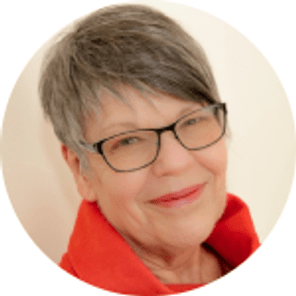
- Inducted:
- 2021
- Category:
- Change Agent
Working across government, civil society and academia, Joanne Crawford has combined research, policy, advocacy and collaboration for more than 35 years, to advance gender equality, sustainable development, human security, and address poverty and inequality.
In the 1980s, Joanne contributed to the movement for disarmament and peace as co-convenor, People for Nuclear Disarmament (Victoria); disarmament and development officer, Australian Council for Overseas Aid (ACFOA); member of Australia’s delegation to the UN Third Special Session on Disarmament (1988); and campaigns officer for the Australian Council for Overseas Aid (ACFOA)’s One World or None campaign (1989).
In the 1990s, working with the Australian Government’s Office for the Status of Women on Australia’s Women’s Budget Statement (1991–92, 1992–93), Joanne coordinated a whole-of-government process and a 400-page official Budget Paper, a world-leading process at the time that still informs thinking on gendered budgeting in Australia. She represented the Australian Government at global meetings on women and the environment (1991) and coordinated Australia’s position paper on women and the environment for the 1992 UN Conference on Environment and Development; and served on Australia’s delegation to the UN Commission on the Status of Women (Member 1992, Deputy Leader 1993). Also in the Department of Prime Minister and Cabinet, Joanne informed trade, defence and foreign policy development (1993–94, 1995–98) and led arts and cultural programming for the Global Cultural Diversity Conference (1995), showcasing Australia’s diversity to global audiences. At the Australian Agency for International Development, Joanne shaped approaches to governance, microfinance and private sector engagement as inaugural Director of the Governance Group (1998–99).
Joanne’s work with the International Women’s Development Agency (IWDA) has been at the core of her contribution to gender equality over the past two decades. She led significant growth in IWDA’s research and policy engagement from 2008–2016. The research strategy she developed and collaborations she helped realise generated new evidence about improving gender equality in and through water, sanitation and hygiene; the nature and impact of violence against women with disabilities in Cambodia; and measuring gender and economic outcomes in subsistence communities in Melanesia. Closing the Gender Gap: Gender in Australian NGOs (2011), research that Joanne co-authored, drove a strengthened focus on gender equality across the development sector. Through submissions and evidence to seven parliamentary inquiries between 2009 and 2015, she communicated key opportunities to advance gender equality in development policy and practice, influencing analysis and recommendations.
Perhaps Joanne’s most important impact has been on the measurement and visibility of gendered poverty and inequality. She has played key roles in IWDA’s contribution over 12 years and a series of international collaborations to developing and refining a groundbreaking gender-sensitive measure of multidimensional poverty and inequality, the Individual Deprivation Measure. IWDA is now taking this work forward as Equality Insights, and Joanne continues to work as Special Advisor with the Equality Insights team to shift global measurement approaches and inspire social change that transforms gendered poverty and inequality.
Updated